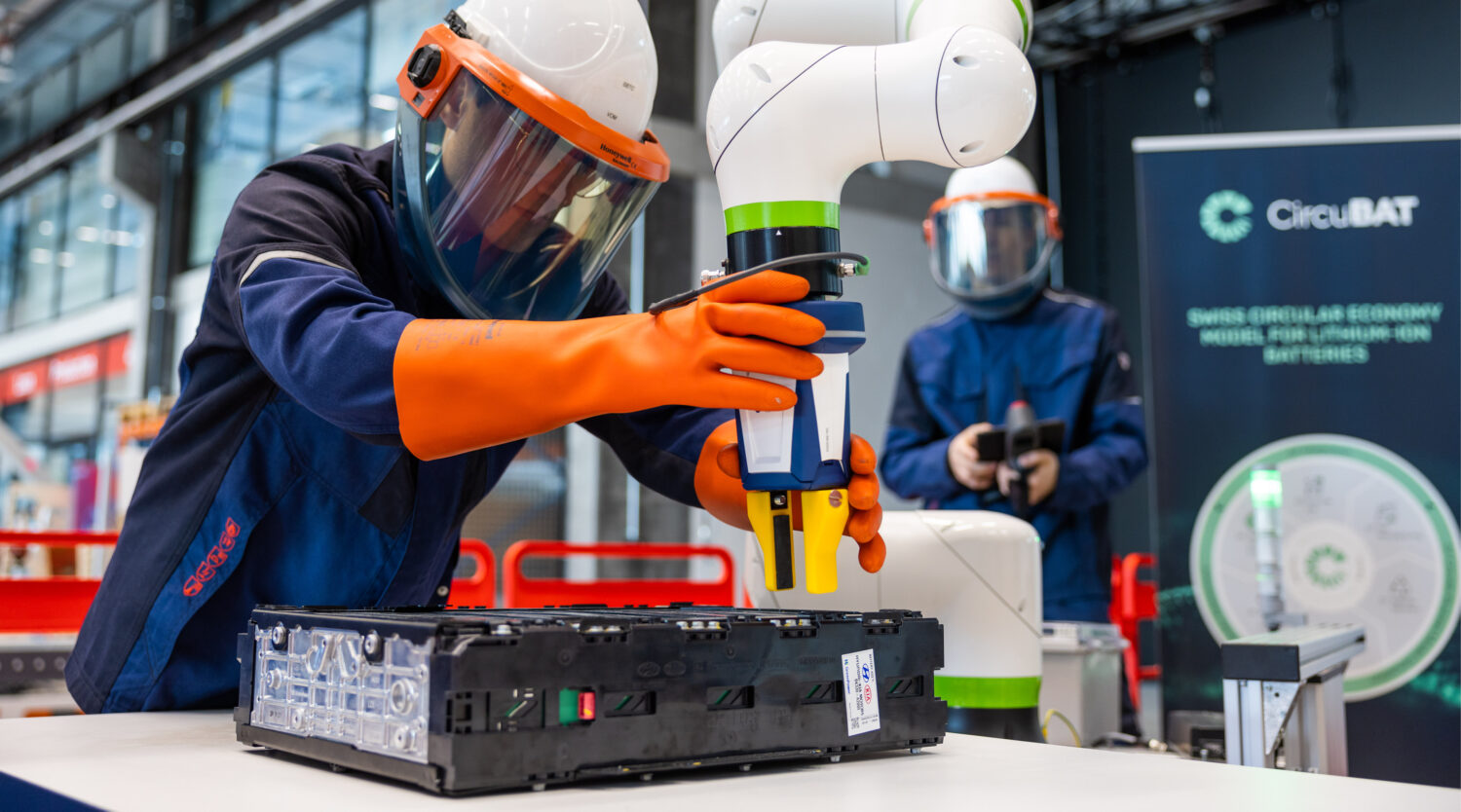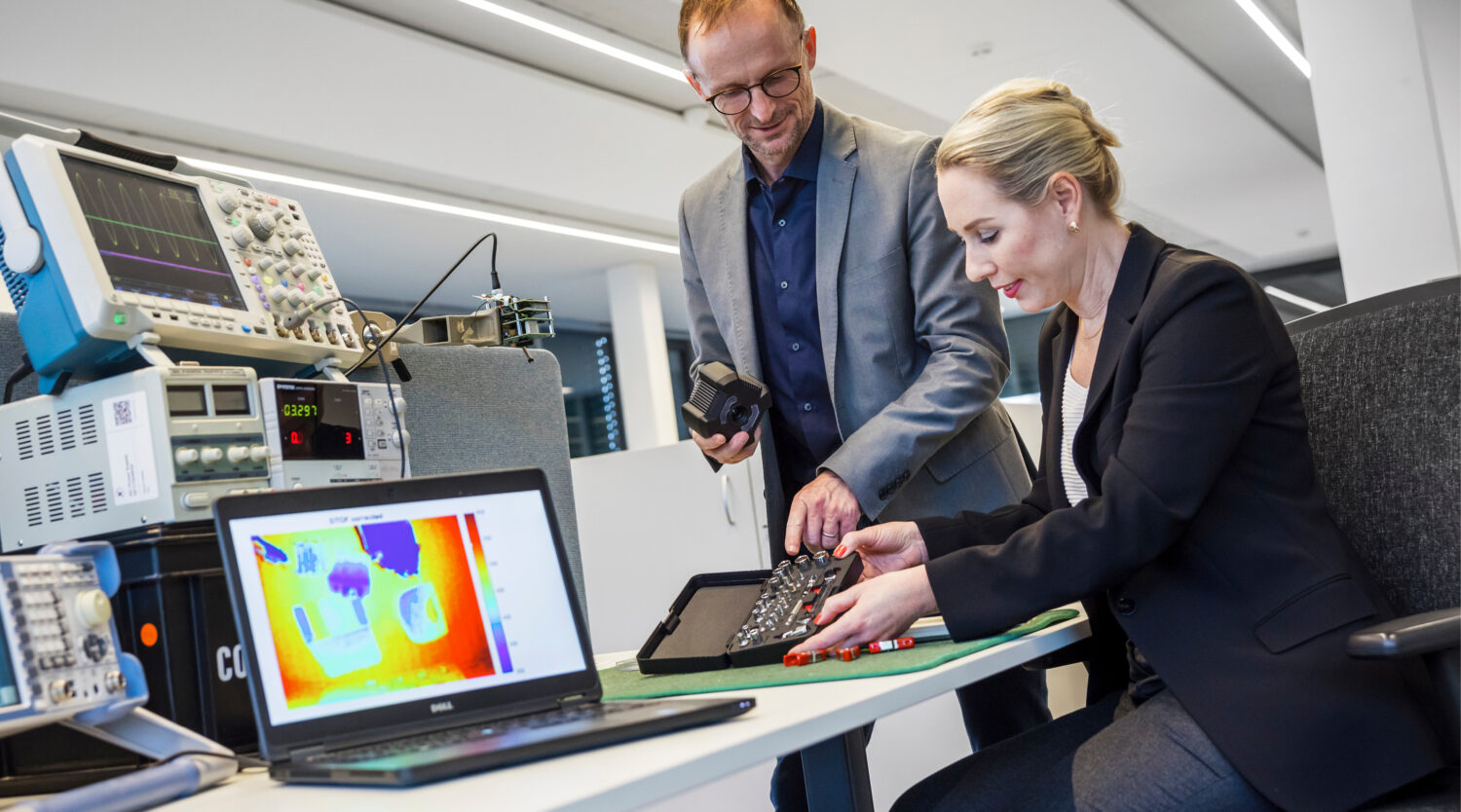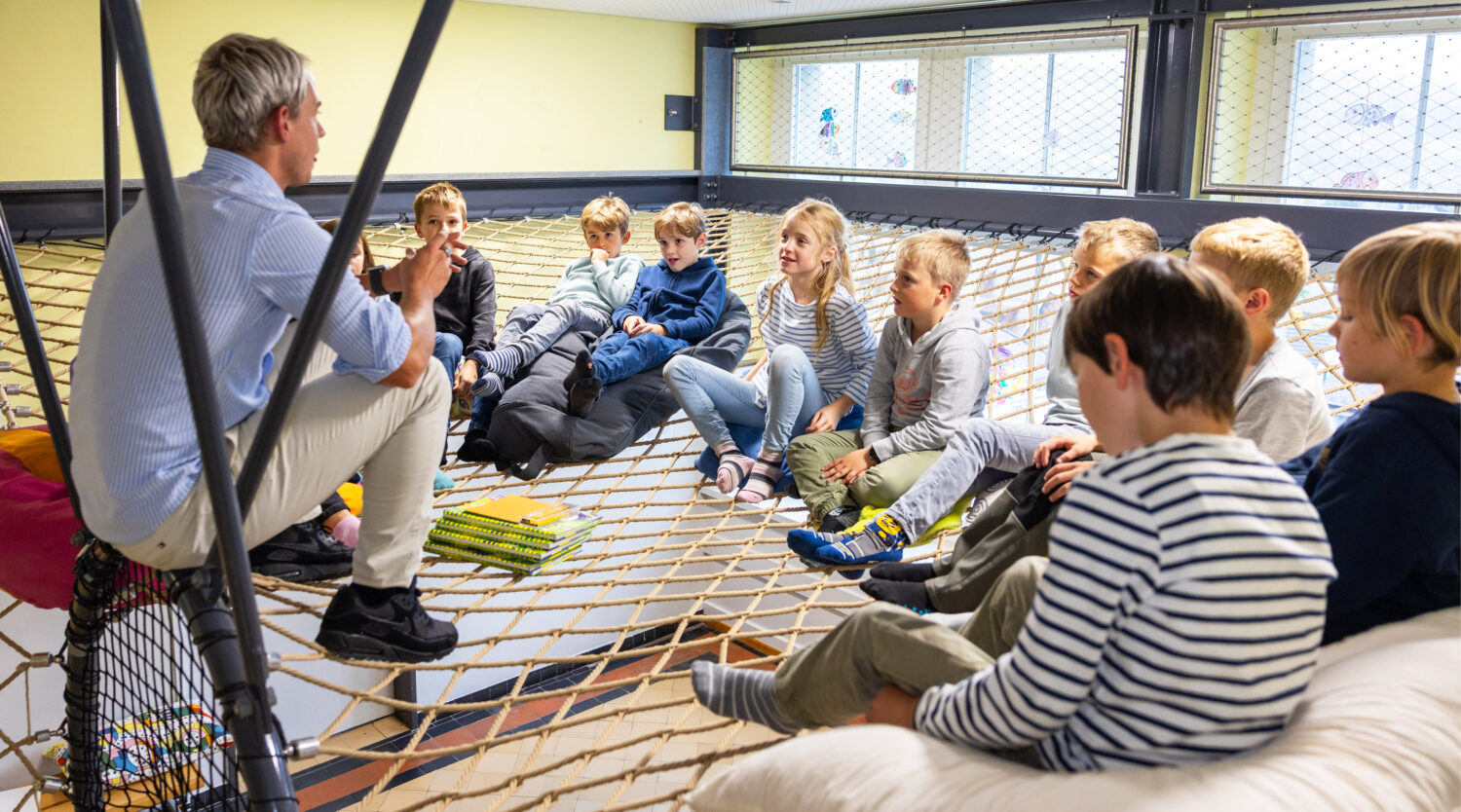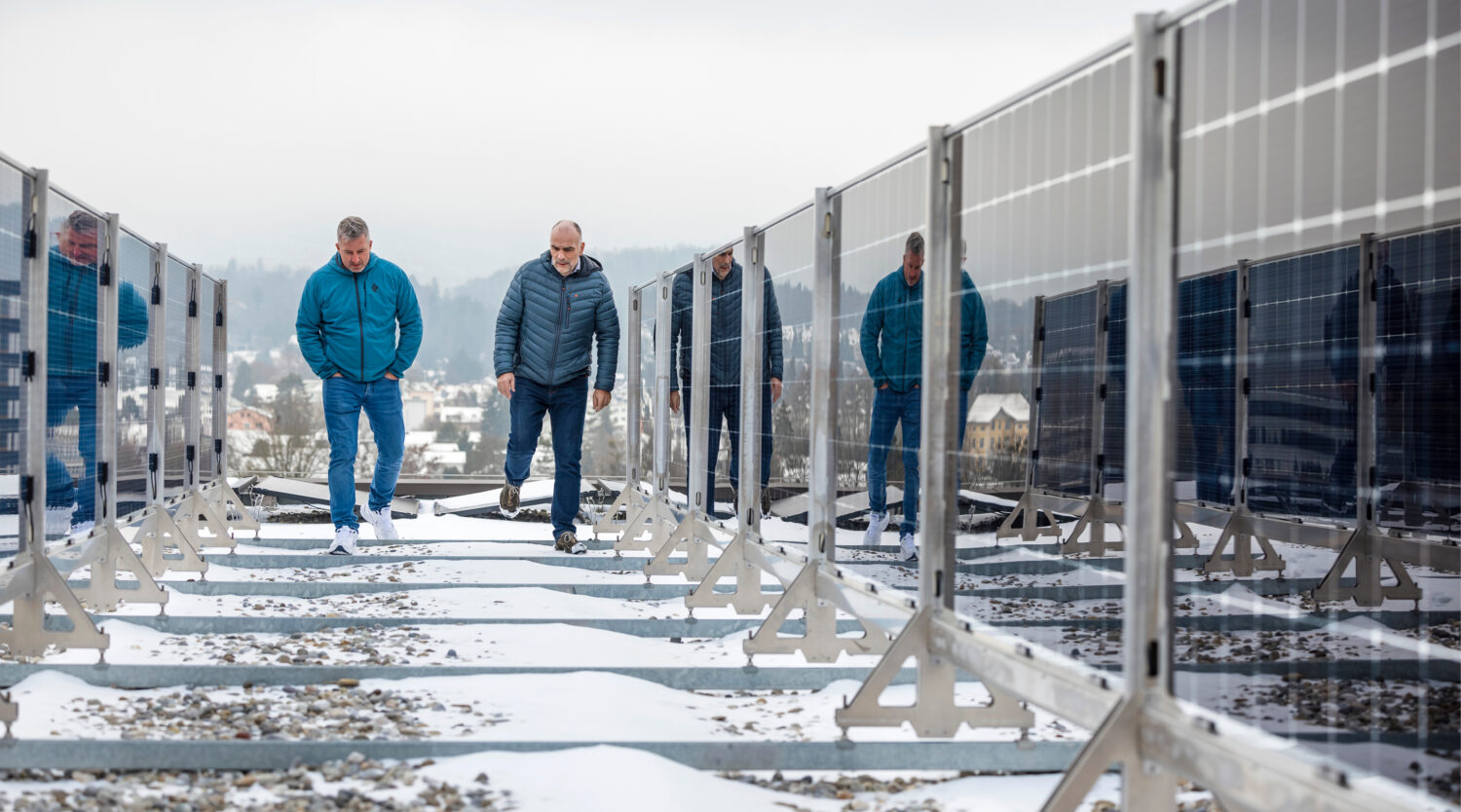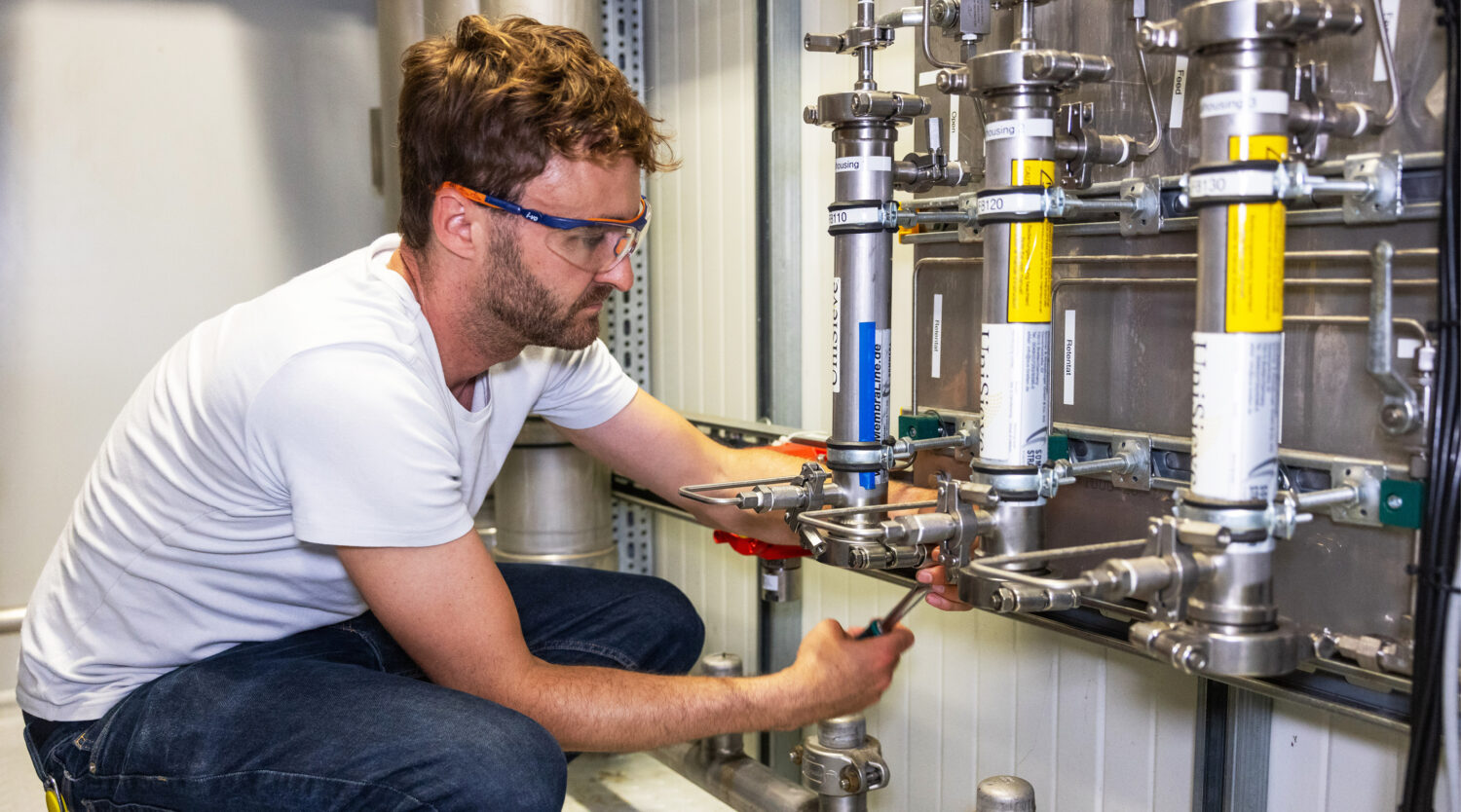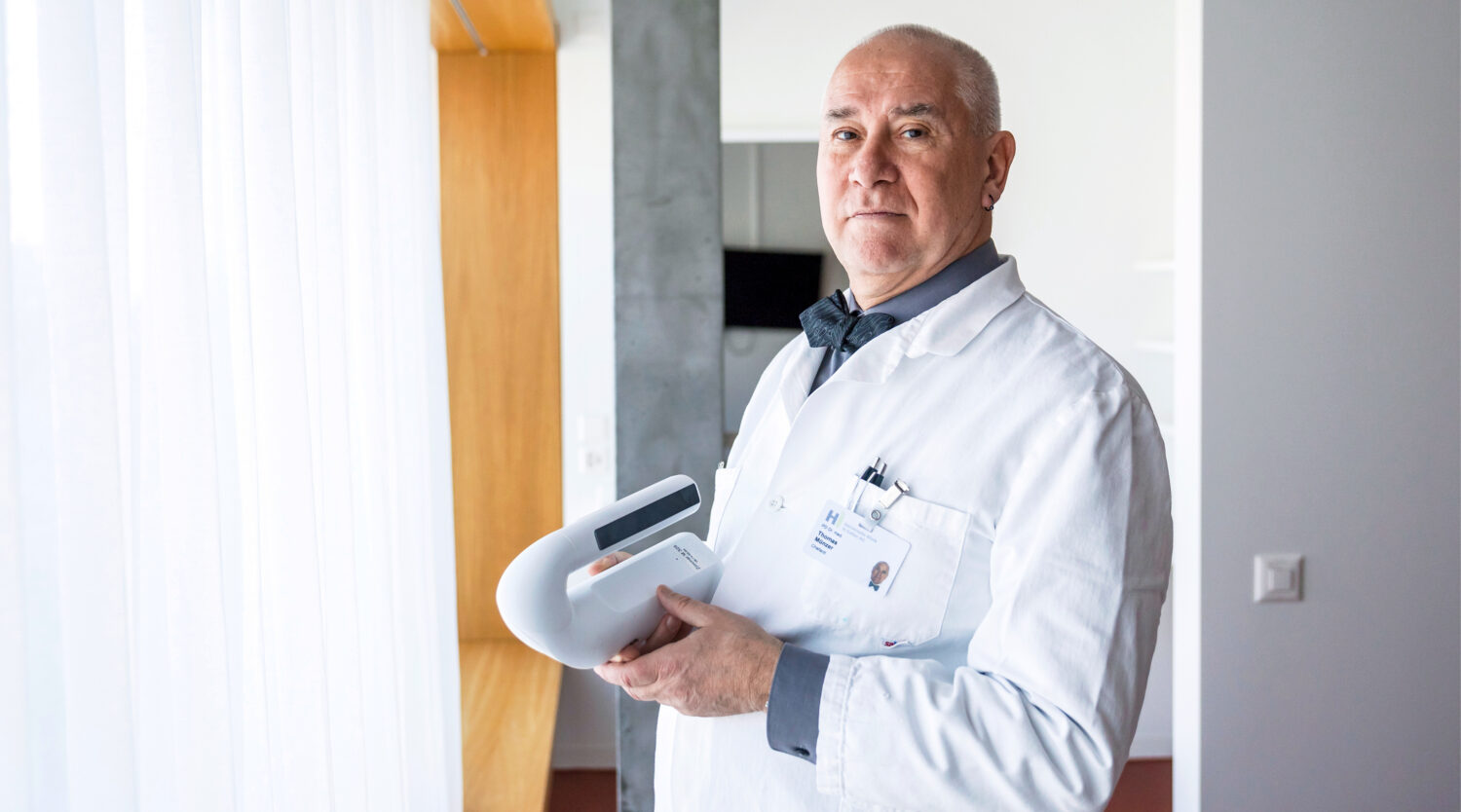
Artificial intelligence in the service of geriatrics
What can artificial intelligence (AI) do for geriatric medicine? Actually, quite a lot, says Thomas Münzer, Chief Physician at the Geriatrische Klinik St. Gallen: «AI has the potential to relieve the burden on carers and maintain the autonomy of older people.»
This potential was the focus of the international innovation project DIANA, which the Geriatrische Klinik St. Gallen was involved in from the beginning of 2020 until the end of 2022. The goal: to develop an AI-supported assistant for geriatric medicine.

«Our clinic has gained valuable experience through AI, and DIANA has attracted attention in the Swiss healthcare sector.»
Thomas Münzer
Chief Physician at the Geriatrische Klinik St. Gallen
September 2019: request for involvement
When Thomas Münzer was asked in autumn 2019 whether he would like to take part in the project, the head physician didn’t think twice: «A lot is happening in the development of medical AI solutions, but a bridge needs to be built to take us from the laboratory to practical use.» This was the second project for the clinic as part of the EU Active and Assisted Living (AAL) programme, which aims to improve the quality of life of older people through technical innovations. Heading things up once again was Cogvis, a spin-off of the Vienna University of Technology. With the support of Innosuisse, the clinic was quickly on board: «I was pleasantly surprised for the second time how easy it is as a Swiss organisation to take part in an EU project,» says Münzer.
February 2020: kick-off meeting in Vienna
In February 2020, the project partners came together for the first time in Vienna, including Caritas Portugal, the Universidade Católica Portuguesa, Romanian consulting firm Bluepoint and Swiss IT distributor EET. «We first defined the milestones as well as our roles. My task was to make suggestions on how AI-based 3D sensors could be used in everyday clinical practice,» explains Münzer. The international team then set about developing a Digital Intelligent Assistant for Nursing Applications – or DIANA for short. Subsequently, the project partners exchanged information in monthly online meetings.

May 2021: focus on toilet use
Project leader Cogvis already had smart sensor technology on the market that sounds the alarm if patients fall or get out of bed. The new solution was designed to expand on the possibilities offered here: «Our aim was to monitor more complex movement sequences and enable interaction between AI and patients,» explains Thomas Münzer. «We identified a need for assistance, especially when it came to using the toilet. With dementia, this process becomes particularly challenging at night.» The team therefore focussed on a module that accompanies and guides affected individuals when they go to the toilet. The requirements were compiled in May 2021 by interviewing healthcare professionals.
November 2022: pilot study in the clinic
The development phase was followed by the test phase in everyday clinical practice: at the end of 2022, the WC module was used in pilot tests in Switzerland and Portugal. «It turned out that it is not that easy to introduce AI technologies in a hospital,» says Thomas Münzer. A number of technical hurdles had to be overcome and various ethical issues clarified in advance. It is essential that DIANA does not interfere with privacy, for example, and that the images it provides are anonymised. Experiences during these initial tests were positive: «Those affected were surprisingly open to the solution, and our carers provided good input for further development,» says Münzer.
«A lot is happening in the development of medical AI solutions, but a bridge needs to be built to take us from the laboratory to practical use.»
January 2023: plans for new applications
After three years, the project objectives had been achieved: the proof of concept had been delivered, and the solution was on the market. Thomas Münzer draws a positive conclusion from all of this: «Our clinic has gained valuable experience through AI, and DIANA has attracted attention in the Swiss healthcare sector.» When the team met in Vienna in January 2023 to finalise the project, the partners were already making plans for further development. One focus is on the intelligent analysis of movement patterns. The head physician sees this as an opportunity for geriatrics: «An AI-based early warning system could recognise changes before we notice them.»
About the Active and Assisted Living (AAL) programme
AAL was a thematic innovation partnership under the EU’s Horizon 2020 framework programme. Even though Switzerland is considered a non-associated third country in the current Horizon Europe framework programme for research and innovation, innovative Swiss companies, end-user and civil society organisations as well as universities can continue to participate in thematic EU partnerships. The Entreprise Europe Network – Switzerland is available to them for international partner searches.
